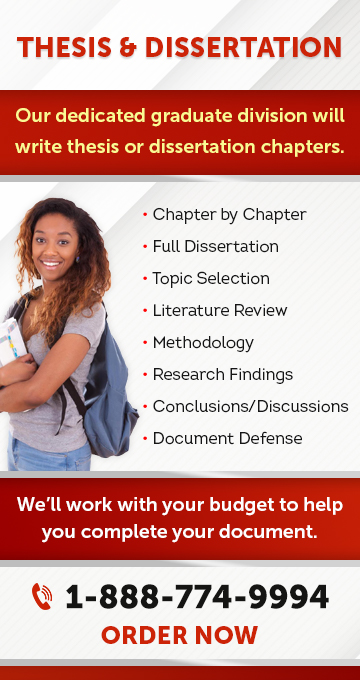
CHAPTER TWO: REVIEW OF RELATED LITERATURE
Chapter 1 introduces your thesis, the research problems, and questions you intend to work on. On the other hand, this chapter deals with the evaluation and organization of the works of literature you've gathered, centered on the theme of your thesis or dissertation. In this article, you'll learn all you need to know about gathering, evaluating, organizing and presenting the information necessary for your literature review.
What Is a Literature Review?
A literature review is a collection, survey and evaluation of scholarly sources on a particular research topic. It helps to give an overall view of the current body of knowledge on the topic and allows you to note the relevant or mainstream theories and gaps in the existing research. It involves searching for relevant and related publications, organizing them, evaluating and critically analyzing them.
Aims of a literature review
Some of the purposes this chapter on the review of related literature is to serve are outlined below:
- Your literature review should present a clear grasp of the key ideas related to your thesis topic
- It should demonstrate a solid knowledge of your research area and other related areas
- It should illustrate that you can understand and evaluate the work of others
- It should set up the theoretical framework for your thesis research
A good literature review should not just summarize the literary sources. It should synthesis, evaluate and critically analyze the publications to provide a clear overview of the body of knowledge on that subject.

Steps to writing a good literature review
The key steps to writing a good literature review are:
- Gather information on the relevant literature
- Evaluate and synthesize the information gathered
- Identify the various themes, comparisons and contrasts
- Outline the structure of your review
- Write the literature review
How to Search for Related and Relevant Literature
All the literature gathered must be centered around your research problem and questions, which you've outlined in the preceding chapter 1 the Introduction. Here are some important tips to help you as you begin your search for the literature:

- Start by making a list of all the relevant keywords related to the research problem and question. The keywords should include the key concepts, variables, synonyms and related terms.
- Use the keywords you created to begin searching for relevant sources. There are lots of useful databases on the net to search for journals and articles.
- To streamline your search, start by reading the abstract of the journal or paper to find out if it's relevant. You can also use the bibliography of the relevant papers you find to find more sources.
- Take note of the citations that keep recurring for authors, books or articles.
- Include studies that contradict your point of view to provide a good balance.
Types of Literature
In your search for relevant literature for your thesis, you have to ensure to select appropriate source material. It is important to use various academic or scholarly sources that are relevant, current and authoritative. The different types of literature you will encounter are:
- Primary Literature consists of original studies, also called empirical research, derived from direct observation, statistics, interviews or experiments. They are usually published in peer-reviewed journals and include conference papers, pre-prints.
- Secondary literature consists of evaluations and interpretations based on the primary source literature. They include review articles and reference works.
- Tertiary Literature consists of collections of primary and secondary sources to provide an overview or introduction to the principles and practices within the discipline. They include textbooks, encyclopedias, handbooks or newspapers.
Tips for Evaluating Your Literature Sources
Note the following as you evaluate and synthesize the studies, findings and conclusions:
- Critically read each source and look for the arguments presented rather than for the fact
- Take note of the assumptions and biases the researchers make
- Outline the methodologies, subjects, equipment used
- Note the experts in the field: the names that are frequently referenced
- Take note of conflicting theories, results and ideas
- Organize the papers by looking for patterns and by developing subtopics
- Note the common findings, important research trends and the most influential theories
- Make sure the sources you reference are credible
- Focus on influential articles and those with high citation counts
- Note any influential theories or studies that changed the direction of the field
- Observe the debates, conflicts and contradictions among the different literatures
Structure of a Literature Review
Below are some practical tips for structuring a quality literature review:
- Introduction
Your introduction to the literature review should contain a summary of the overall topic of your dissertation or your thesis. It would be best to describe what your literature review will address and how it will be organized. The introduction should attract your thesis reader's attention and provide an easy understanding based on the subject that will be worked on.
- In the introduction to the chapter on literature review, you should include the general topic, why you're writing a review and why the topic is important. It would help if you pointed out the scope of the review and the overall trends in previous works published on the topic. You should outline the criteria used for your literature selection and the organization of the review.
- It is important to start with an outline of the main points you intend to make and emphasize your argument's structure in your writing.
- Body
The work done in the evaluation stage will help in writing the body for this chapter. You will need to merge and construct several of your readings into each paragraph, dealing with different themes relevant to your topic. The body should include paragraphs on the historical background, methodologies, previous studies, supporting evidence, alternate viewpoints, central questions and the general conclusions.
- Conclusion
The conclusion should be neat and concise. In this section, you should summarize your literature review, discuss the implications of your research, and open the way for further research needed in this area.
- List of References
This is a list of all the publications used in your literature review. This reference list helps your readers evaluate your research quality and helps protect you from accusations of plagiarism. Ensure that each reference is carefully and correctly documented.

